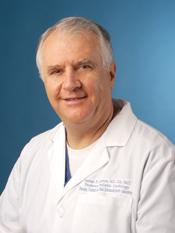
Dr. Maureen An-ping Su M. D.
Pediatrician
Ucsf Medical Center Childrens Hospital 505 Parnassuss Ave B San Francisco CA, 94143About
Dr. Maureen Su is a pediatrician practicing in San Francisco, CA. Dr. Su is a doctor who specializes in the health care of children. As a pedicatrician, Dr. Su diagnoses and treats infections, injuries, diseases and other disorders in children. Pediatricians typically work with infants, children, teenagers and young adults up to age 21. They practice medical care as well as preventative health care. Dr. Su can oversee and manage the physical, mental and emotional health of their patients.
Education and Training
Harvard Med Sch, Boston Ma 2000
Board Certification
PediatricsAmerican Board of PediatricsABP- Pediatric Endocrinology
Provider Details
Expert Publications
Data provided by the National Library of Medicine- A screen for modifiers of decapentaplegic mutant phenotypes identifies lilliputian, the only member of the Fragile-X/Burkitt's Lymphoma family of transcription factors in Drosophila melanogaster.
- Aire: an update.
- Mechanisms of an autoimmunity syndrome in mice caused by a dominant mutation in Aire.
- Deletional tolerance mediated by extrathymic Aire-expressing cells.
- The role of X-linked FOXP3 in the autoimmune susceptibility of Turner Syndrome patients.
- Monogenic autoimmune diseases: insights into self-tolerance.
- A novel myelin P0-specific T cell receptor transgenic mouse develops a fulminant autoimmune peripheral neuropathy.
- Aire and T cell development.
- An essential role of the transcription factor GATA-3 for the function of regulatory T cells.
- Defective autoimmune regulator-dependent central tolerance to myelin protein zero is linked to autoimmune peripheral neuropathy.
- Aire deficiency promotes TRP-1-specific immune rejection of melanoma.
- Divergent effects of T cell costimulation and inflammatory cytokine production on autoimmune peripheral neuropathy provoked by Aire deficiency.
- Patients with antineutrophil cytoplasmic antibody-associated vasculitis have defective Treg cell function exacerbated by the presence of a suppression-resistant effector cell population.
- Reply: To PMID 23553415.
- Differential T cell responses to residual viral antigen prolong CD4+ T cell contraction following the resolution of infection.
Dr. Maureen An-ping Su M. D.'s Practice location
Maureen Su
Ucsf Medical Center Childrens Hospital 505 Parnassuss Ave B -San Francisco, CA 94143Get Direction
UNC Hospitals Children's Specialty Clinic
101 Manning Drive N.C. Children's Hospital -Chapel Hill, NC 27514Get Direction
Dr. Maureen An-ping Su M. D.'s reviews
Write ReviewRecommended Articles
- What Are Roundworms?
What are roundworms?Roundworms are a type of parasitic worms that infect the human intestine. Roundworms may vary and size and have a characteristic long, round body. These parasitic worms can cause a number of health problems in humans. They can enter the human body through the mouth and direct...
- 5 Tips on Living with Strep Throat
Strep throat is an infection that causes sore throat or pharyngitis. It is usually called an infection of the tonsils and throat. Strep throat is caused by bacteria living in the nose and throat known as group A streptococcus. Just like other bacterial infections, you can get the disease from a...
- How Is Autism Diagnosed?
Autism spectrum disorder (ASD) describes a specific set of developmental and behavioral problems that affect an individual's behavior, as well as an individual's social and communication skills. A diagnosis of ASD means that your child’s social and communication skills, as well as play skills, are...
- Influenza B: What You Need to Know
Influenza Influenza, also commonly called as the flu, is a highly contagious respiratory infection caused by viruses, particularly influenza A or influenza B. These viruses usually infect the throat, nose, and lungs. Although the flu causes mild symptoms in most people, it can also cause severe...
- ADHD: How it Impacts the Family
Any negative medical condition suffered by one family member usually carries over to the rest of the family. How an ADHD diagnosis can affect the whole familyOnce a child, teenager, or even an adult, is diagnosed with ADHD, the impact of the diagnosis will be felt by the entire family. Furthermore,...
- Newborn Fever: What to Do?
What is a newborn fever?According to the American Academy of Pediatrics (AAP), the normal body temperature of a healthy infant is between 97-100.4 degrees Fahrenheit or 36-38 degrees Celsius. You’ll know that your baby has a fever if his or her body temperature rises above 100.4 degrees Fahrenheit...
Nearby Providers
- Dr. Norman Silverman M.D.505 PARNASSUS AVE SAN FRANCISCO CA 94143
- Dr. Sydney Sawyer M.D.505 Parnassus Ave San Francisco CA 94143
- Dr. Thomas A. Nakagawa MD505 Parnassus Ave San Francisco CA 94143
- Dr. Michele L. Mietus-snyder M.D.2 Koret Way San Francisco CA 94143
- Dr. Matthew Edward Ravish D.O.505 Parnassus Ave San Francisco CA 94143
- Dr. Sue Jung Rhee M.D.500 Parnassus Ave Mu4e Box 0136 San Francisco CA 94143
Nearest Hospitals
UCSF MEDICAL CENTERl
505 PARNASSUS AVE, BOX 0296 SAN FRANCISCO CA 94143ST MARY'S MEDICAL CENTERl
450 STANYAN ST SAN FRANCISCO CA 94117DUKE UNIVERSITY HOSPITALl
PO BOX 3814 DUMC ERWIN RD DURHAM NC 27710UNIVERSITY OF NORTH CAROLINA HOSPITALl
101 MANNING DRIVE CHAPEL HILL NC 27514










